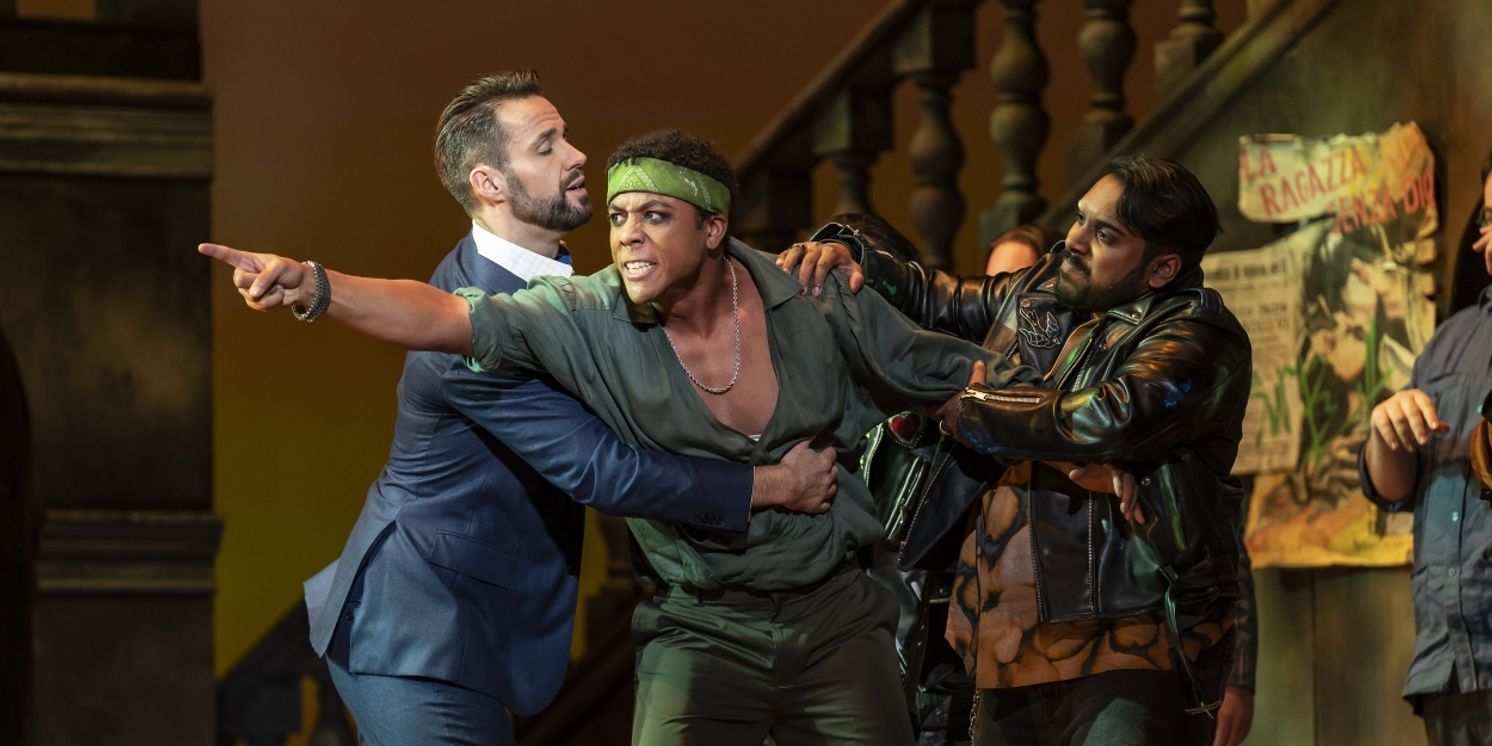Review: ROMEO AND JULIET at Kennedy Center
The music’s power exists in a vacuum.

The oft-told tale of William Shakespeare’s Romeo and Juliet which has been beloved throughout the ages and been interpreted and showcased in so many films, stage productions and even a ballet ---has been mounted by the Washington National Opera in an odd sort of manner. In composer Charles Gounod’s opera, the music is bewitching and should be the glory of the opera, but it should be paired with a text that is respected.
In this production, the music’s power exists in a vacuum as director Simon Godwin has seemingly excised so much of the dramatic drive and context of the text that there is no tragic and unified vision which is so important to the flow of this tale of doomed lovers.
The direction seemed to be alternately detached and nebulous in tone with little chemistry between the characters in this large ensemble. The characters all appear to be mere puppets in the hands of the director with no distinct reciprocity or connection. I am used to such deconstruction, but the tragic finale makes little sense when the opera’s subject matter of feuding families fostering hatred amidst the love of their progeny is handled with what is often a glib and facile directorial tone.
It is ironic but true that by not stressing the libretto by Jules Barbier and Michael Carré, the music stands alone in cold, glacial isolation. The icy feeling of this production is compounded with an odd and unsatisfying staging with the feuding dynasties assembled in small clusters on the stage, the fight scenes staged with no tragic feel and the main characters seemingly singing into a void.
To the good fortune of the audience, the exquisite and lovely soprano of Rosa Feola as Juliet was very expressive--- especially in the romantic duets, she sang with a the powerful tenor of Adam Smith as Romeo. Feola and Smith sang the closing moments of the opera with feeling and passion.
The baritone of Justin Austin’s Mercutio was a delight of the evening as Mr. Austin managed to eke out some semblance of a character amidst the proceedings.
Nicolas Testé as Frère Laurent, Donovan Singletary as Count Capulet and Jill Grove as Gertrude were superb in their respective roles.
Conductor Evan Rogister conducted with sensitivity to the music and the Washington National Orchestra performed with taste.
Costume design by Loren Shaw was a complete kaleidoscope of colors and eclectic styles (as I would assume she was directed to do).
Scenic design by Daniel Soule was very pared down -- a bridge and arch effect was reconfigured in differing ways throughout the production. There was no expansive use of the Opera House stage to engage the eye.
(On the audience etiquette front --there was much fidgeting in the seats, cell phone calls made and couples conversing during the production).
I have always supported the visions of a director or production to be interpreted in any manner whatsoever if the production works in total re-conception. In this instance, the interpretation of the libretto and the synergy of the various elements in the opera were too disjointed to allow the moving tragedy of the source material to connect with the audience.
Running Time: Two Hours and 52 minutes including a 25-minute intermission.
Romeo and Juliet runs through November 18th, 2023, with a special Cafritz Young Artist Performance on November 17, 2023, at the Kennedy Center located at 2700 F Street, NW.
Photo credit: Adam Smith as Romeo and Justin Austin as Mercutio in Washington National Opera's production of Romeo and Juliet. Photo by Scott Suchman.
Reader Reviews
Videos

